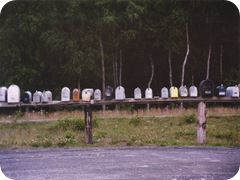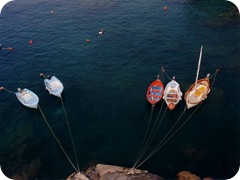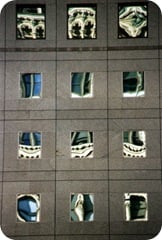In a recent post I asked if a “No-Tech” talk would lead to this:
 At this week’s AWESOME ETAI Jerusalem Conference I paid special attention to how other people were using technology at the conference.
At this week’s AWESOME ETAI Jerusalem Conference I paid special attention to how other people were using technology at the conference.
On one hand, while I may not have been the only presenter without a PowerPoint presentation, you didn’t need many fingers to count us. The presenters whose talks I attended used the PowerPoint well! Fran Sokel (who was at IATEFL Brighton!!) used it to present quotes from research on Effective Teaching and Jane Cohen (from the British Council), for example, delighted us with images related to a thought provoking lesson plan for students on “Is Google making us dumber?” Believe me, there were many others, too!
In addition, how could you have such a hilarious Pecha Kucha without PowerPoint?
On the other hand, almost no one took notes during a talk on any form of computer (nobody was tweeting the lectures either!). The sponsors provided paper and pens and they were extensively used. I felt the power of my PLN when I was the only one who recognized WORDLE when used in a talk.
At my talk, teachers seemed genuinely interested in things they could do using only the whiteboard, the marker and the “friendly eraser”. I hear that more and more schools have a Smartboard in some classrooms ( I personally have not seen one yet) yet it seems that for a large percent of teachers the simple whiteboard is what they use the most.
My talk was about weak pupils in high-school, who have trouble concentrating during the best of times and particularly so when something “occurred” before class. Paying homage to Jason Renshaw and Mike Harrisson (see links by clicking on the Live Binder icon in the middle column of the homepage) we went through building a short text with the pupils with no previous knowledge (on the teacher’s part) of what would be the issue on their minds, despite their limited vocabulary. Then we “milked” the text in a number of ways using only the “friendly eraser” and the marker. I brought the first text, for the absolute weakest level, ready from my classroom ( and wrote it on the board). But I was getting more confident as the talk proceeded and created the next text with the teachers in the room on the spot (it was named “Never Buy an Engine from a Mermaid!)
I ended the talk by reading out Shel Silverstein’s short poem “This Bridge” (see Live Binder!). I was trying to stress the point that other teachers don’t have to do these things the way I did them. I read ideas and adapted them to suit my needs, thus making them my own. As it says in the poem “This Bridge will only take you half way there” one can’t expect a strategy or a lesson plan to fit your class and your teaching style as it is. “The last few steps you’ll have to take alone.”
Oh! And I didn’t see anyone yawn!









